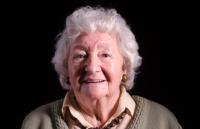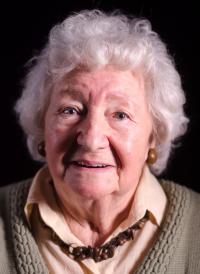I was poor but knew to enjoy life

Stáhnout obrázek
Marie Wollnerová was born on 1 February 1936 in Prague into a destitute workers‘ family. Her father passed away when she was fourteen. In 1951, right after finishing primary school she took a job in the Motorlet factory. She completed an apprenticeship in aircraft engineering, assembling components for airplane engines. She had done this job up until 1959, meanwhile witnessing the tightening communists‘ grip on power and their increased influenced on life in the factory. She had never joined the Communist Party herself. After 1959 she made a living by doing occasional jobs which enabled her to look after her children at home. In 1991 she retired but still made money on the side by cleaning in households.

